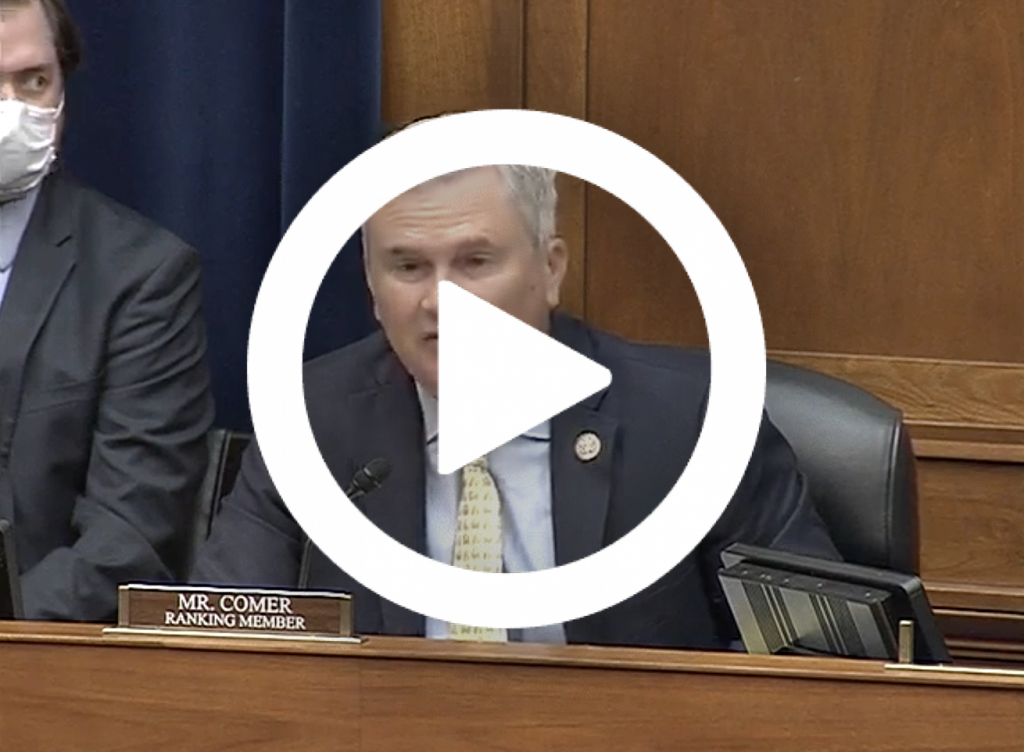Comer Markup Statement on the Federal Advisory Committee Transparency Act
WASHINGTON—Today, the House Committee on Oversight and Reform held a markup on the Federal Advisory Committee Transparency Act (H.R. 1930), which was introduced by Ranking Member James Comer (R-Ky.) and Chairwoman Carolyn Maloney (D-N.Y.) to strengthen the transparency and accountability of federal advisory committees.
In his opening statement, Ranking Member Comer emphasized the critical role federal advisory committees play in congressional and executive branch policymaking but the need to make their operations more transparent to the public. Ranking Member Comer underscored the need for Congress to approve the Federal Advisory Committee Transparency Act to close loopholes and make federal advisory committees more accountable to Congress and the American people.
Below are the remarks as prepared for delivery.
Federal Advisory Committees have a long and important history in the United States government, beginning when President George Washington sought out the advice of an ad hoc committee during the Whiskey Rebellion of 1794.
In the more than 225 years that have followed, advisory committees have continued to be a valuable part of congressional and executive branch policymaking.
The Federal Advisory Committee Act was created to improve the efficiency and transparency of federal advisory committees.
It has also reduced advisory committee duplication across the government.
To be clear about what we are talking about here: in 2015 there were more than 1,000 federal advisory committees with more than 72,000 members.
This cost the American taxpayer over $360 million in 2015 alone.
Unfortunately, since the law was enacted in 1972 agencies have used loopholes to bypass transparency requirements.
H.R. 1930, the Federal Advisory Committee Transparency Act, ensures federal advisory committees are truly transparent and working for the betterment of the United States government and the American people.
First, the bill requires agency heads to consider recommendations for advisory committee members from interested parties and the public.
It also requires members be selected without regard to political affiliation.
Second, the bill increases transparency by requiring agencies to publish all their advisory committees on agency websites and fully disclose the establishing charters, members, and committee activities.
Also, detailed minutes from advisory committee meetings must be published.
This will provide the public with true transparency into the sources and nature of policy advice our agencies are receiving.
The Federal Advisory Committee Transparency Act ensures greater transparency into federal advisory committee operations and membership.
This will help Congress and the American taxpayer hold these advisory committees accountable.
I appreciate Chairwoman Maloney’s partnership in reintroducing this bill, and I strongly urge members to support it.
